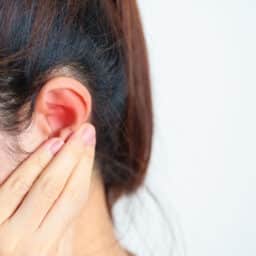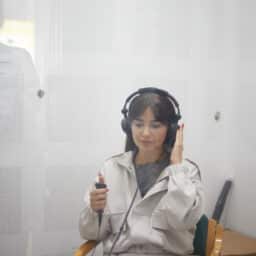Practical Habits That Support Everyday Communication

Experiencing pain on just one side of your throat or ear can be uncomfortable. Unlike more general Approximately 15% of U.S. adults have hearing loss. Daily habits make a profound difference for someone living with hearing loss. Although hearing aids amplify many sounds, consistent, practical communication habits ensure conversations remain straightforward and stress-free. Using Clear…
Why Do Children Hear Differently Than Adults?

Children experience the world through a developing sense of hearing that differs in both structure and sensitivity from that of adults. These differences influence how children perceive, interpret and respond to sound. Knowing how children hear differently can help parents and caregivers support healthy hearing development and better communication. Physical and Developmental Differences The anatomy…
What is the Human Hearing Range, and Can You Lose It?

The human sense of hearing is incredibly sensitive, allowing us to detect a wide range of sounds. But age can decline as we age and age-related hearing loss is the most common form of hearing loss, impacting 55% of people 75 or older. Understanding the typical range of human hearing and how it can change…
Understanding the Difference Between Misophonia and Hyperacusis

Both misophonia and hyperacusis involve an increased sensitivity to sound, but they manifest in different ways. They stem from distinct causes and produce different discomforts. Knowing how they differ can help guide appropriate diagnosis and treatment.What Is Misophonia? Misophonia is a condition where certain everyday sounds trigger intense emotional reactions. These reactions may include feelings…
Is Tinnitus Worse at Night? How Can I Manage It?

Tinnitus is the perception of ringing, buzzing, hissing or other sounds in the ears when no actual sound is present and it has affected nearly 10% of American adults. Tinnitus can be disruptive to daily life and can have a negative impact on mental health. For many, the symptoms may become especially noticeable at night….
Understanding the Differences Between Misophonia and Hyperacusis

Misophonia and hyperacusis are conditions that involve heightened sensitivity to sound. However, they have distinct conditions with different triggers and treatments. It’s helpful to understand the differences between the two to seek the right support and symptom management. Consider the following about the conditions. About Misophonia Misophonia is a condition where specific sounds trigger strong…
How Altitude Impacts Ear Pressure and Tinnitus

Changes in altitude can impact the ears and for those with tinnitus, these shifts can sometimes intensify the symptoms they already experience. Consider the following when traveling or participating in other activities in heightened elevation that could impact ear pressure. The Inner Ear and Pressure The inner ear plays an important role in hearing and…
Can I Have Tinnitus in One Ear?

Tinnitus, or the perception of ringing, buzzing or other sounds that aren’t present, often affects both ears. However, some people experience it in only one ear, a condition known as unilateral tinnitus. Nearly 10% of the U.S. population has experienced tinnitus lasting at least five minutes in the past year. For the people of Santa…
What Happens During a Hearing Exam?

Hearing tests aren’t just about finding out if you need hearing aids. They provide a complete picture of hearing health and can detect issues that might not be obvious. Let’s take a look at what you can expect from a hearing exam to help you set expectations for your next visit. The Three Types…
What to Know About Hearing Loss & Alcohol

It may be fun to grab a drink with friends during happy hour. However, doing so often can actually have an effect on your hearing. Below we review some of the research on this topic. Drinking Can Cause Cocktail Deafness In one study out of London, alcohol use disorder was shown to lead to problems…
